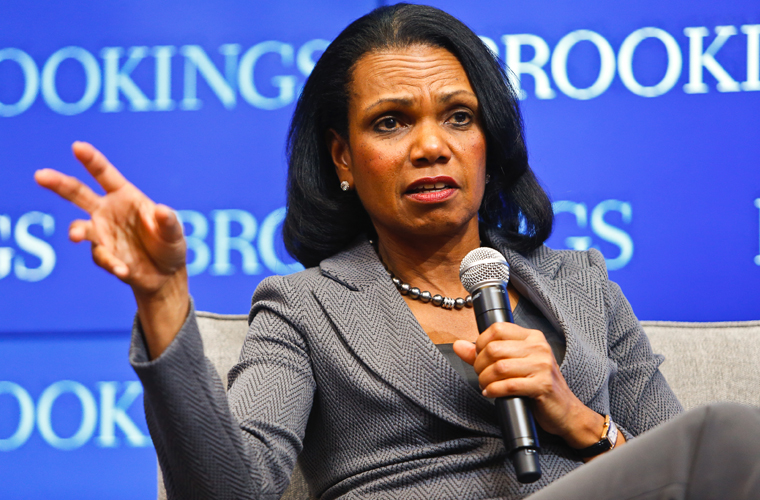Condoleezza Rice is one of the most prominent and influential figures in American politics and foreign policy. She has served as the national security adviser and the secretary of state under President George W. Bush, as well as the director of the Hoover Institution at Stanford University. She is also a professor of political science and a renowned expert on Soviet and Russian affairs.
Rice was born on November 14, 1954, in Birmingham, Alabama, during the era of racial segregation. She grew up in a middle-class family that valued education and culture. Her father was a Presbyterian minister and a guidance counselor, and her mother was a music teacher and an organist. Rice showed exceptional talent in piano and learned to speak French at an early age. She also witnessed the violence and injustice of racism, such as the bombing of a church that killed four of her classmates.
Rice attended the University of Denver, where she initially planned to pursue a career as a concert pianist. However, she became fascinated by international relations after taking a course taught by Josef Korbel, the father of future secretary of state Madeleine Albright. Rice graduated with a bachelor’s degree in political science in 1974, and then earned a master’s degree in economics from the University of Notre Dame in 1975. She returned to Denver to pursue a doctorate in international studies, focusing on the Soviet Union and Eastern Europe. She completed her dissertation on the politics of the Czechoslovak military in 1981.
Rice began her academic career at Stanford University in 1981, where she taught courses on Soviet politics, comparative politics, and international security. She also became involved in public service, working as an assistant to the Joint Chiefs of Staff on nuclear strategy in 1986, and as a director for Soviet and Eastern European affairs for the National Security Council under President George H.W. Bush from 1989 to 1991. She played a key role in shaping the U.S. response to the collapse of communism and the reunification of Germany.
In 1993, Rice became the provost of Stanford University, making her the first woman, first African American, and youngest person to hold that position. She was responsible for managing the university’s budget, academic affairs, and faculty appointments. She also continued to teach and conduct research on international issues. In 1999, she left Stanford to join the presidential campaign of George W. Bush as his foreign policy adviser.
After Bush won the election in 2000, he appointed Rice as his national security adviser, making her the first woman and first African American to hold that post. Rice was one of Bush’s closest confidants and advisers on matters of national security and foreign policy. She was instrumental in shaping the U.S. response to the terrorist attacks of September 11, 2001, and supported the wars in Afghanistan and Iraq. She also advocated for democracy promotion, counterterrorism cooperation, and nuclear nonproliferation.
In 2005, Rice succeeded Colin Powell as secretary of state, becoming the first African American woman to hold that office. As secretary of state, Rice pursued a diplomatic agenda that aimed to foster stability and democracy around the world. She helped negotiate an end to Israel’s occupation of Gaza, persuaded North Korea to return to talks on its nuclear program, supported free trade agreements with several countries, and engaged with emerging powers such as China, India, and Brazil.
In 2009, Rice returned to Stanford University as a professor of political science and a senior fellow at the Hoover Institution. She also became involved in various initiatives and organizations related to education, women’s empowerment, human rights, and sports. She has written several books on her life and career, including No Higher Honor: A Memoir of My Years in Washington (2011) and Democracy: Stories from the Long Road to Freedom (2017).
Condoleezza Rice is a remarkable woman who has achieved many milestones in diplomacy and education. She is widely respected for her intellect, leadership, and courage. She is also an inspiration for many people who aspire to make a positive difference in the world.

